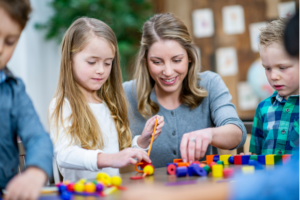Feature: Protecting children’s mental health during lockdown
With schools unlikely to reopen until April, many parents are wondering how to keep their children happy during the current lockdown.
With this in mind, the team at Essential Living has partnered with mental health counsellor, Kerry Quigley on five ways you can improve your child’s mental stability during the lockdown.
Kerry Quigley has been a counsellor for more than 17 years, where she offers specialist guidance on keeping children mentally positive, engaged and helping them to learn under difficult circumstances.
Promote Positivity
Lockdown has turned our lives upside down and children and young people can often ruminate on the worst-case scenarios and ‘what ifs’ when worrying about a situation. As a parent, it can be easy to reciprocate this negativity, when in fact all this will do is make matters worse.
Even if you are having a bad day yourself, as a parent you need to help your child shift this way of thinking by showing optimism and intentionally focusing on the positives in any given situation.
Ms Quigley suggests trying to create things to look forward to, whether it be a special dinner, a family games night, or purchasing a new film to watch, this will encourage your child to look forwards instead of remaining in a negative mindset.
‘Teach your child to look for the silver lining in every cloud.
‘Encouraging your child to also think about the things they are grateful for can improve on their optimism and sense of well-being.’
Maintain a sleep routine
With wild dreams, 3am wake-ups and weary nights, the coronavirus pandemic seems to be playing havoc with our sleep. But it’s not just adults who have joined the #wideawakeclub, as lockdown is also having an impact on the snooze habits of children.
With no school to get up for, it can become easy to slip out of any sort of routine you may have had as bedtime is becoming later.
However, as we all know, quality of sleep can have a huge impact on our daily mood and wellbeing.
Ms Quigley says: ‘Creating a set pattern each night to help your child to sleep more easily will help to support their overall wellbeing.
‘A routine that includes activities, such as a warm bath, listening to music, reading a bedtime story or deep breathing techniques can help your child to wind down at the end of the day.’
Make time for physical activities
The lack of after-school activities is an obvious downside of social isolation, and while you are normally focusing on working, cooking, cleaning and homeschooling during the day, finding time to fit in exercise can be tough.
While children are encouraged to sit in front of laptops and television for remote learning, it is having a significant impact on their overall mood.
Ms Quigley says children are more likely to exercise if their parents take part and suggests trying the Family Fit Club’s online PE lessons.
These workouts have been designed for the entire family regardless of age or ability, teaching movements and actions of activities children love to get up to, such as gaming, sports, cooking, superheroes, dance, TV etc.
‘Engaging in activities like home workouts, painting, baking, or a trip to the local park is educational and can help release endorphins.
‘These hormones are the body’s natural feel-good chemicals that can help to relieve stress, improve concentration, and enable positivity.’
Put yourself in their shoes
Ms Quigley says the struggle of homeschooling can cause frustration and tantrums, which can have significant negative effects on both yourself and your child.
Understanding what lockdown life is like from the perspective of a younger child can be difficult, you must try and see things from a different light.
If they are upset, take time to sit and analyse what the cause may be and listen to what they have to say before you respond. The outcome of this can have a massive impact on their overall mental health and wellbeing.
‘Empathising with your child’s feelings and their point of view can often help to resolve disagreements more quickly.
‘When you empathise and validate your child’s thoughts and emotions this can help to reduce their defensive reactions, enabling your child to be more open to understanding your point of view.’
Encourage mindfulness and be cautious
This time in our lives will go down in the history books, Ms Quigley warns that while children are in the early stages of development, exposure to social media sites and news broadcasting can be distressing and they may not be emotionally prepared.
By incorporating some simple activities such as mindful eating, walking meditations, and guided sessions into your family’s lifestyle, this can help your child to relax and cope better with daily stressors.
Digital platforms provide an opportunity for children to keep learning, entertain and keep in touch with their friends, increased access online brings heightened risks for children’s safety, protection and privacy.
Therefore, it is essential to ensure your children know what to be aware of. You can follow this helpful guide on how to monitor kids’ online and computer activity.
Kerry Quigley says: ‘Children and young people of all developmental stages can benefit from mindfulness.
‘The simple practice of paying attention to the present moment can help to minimise negative feelings and promote happiness.’
Photo Credit – Pixabay
















